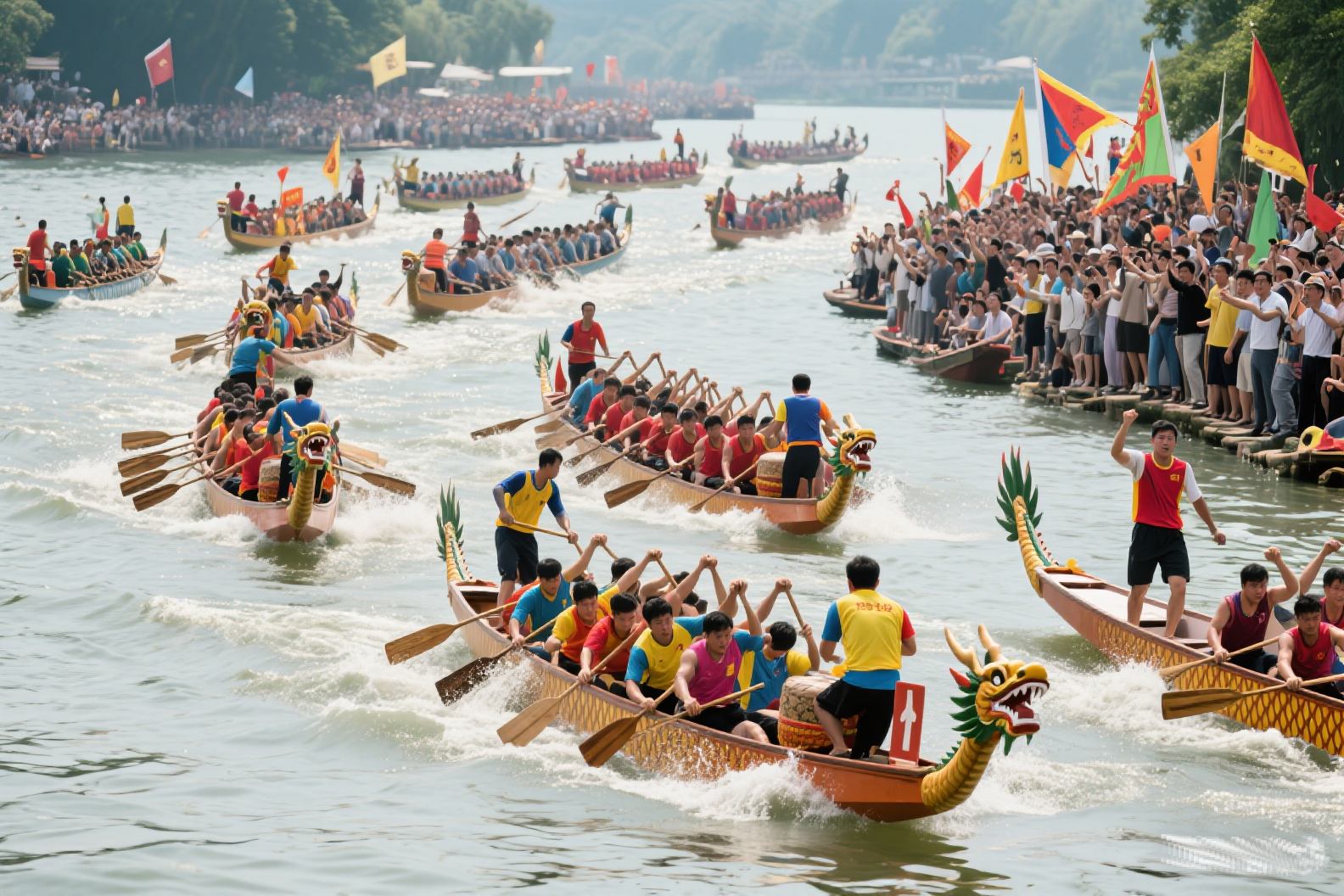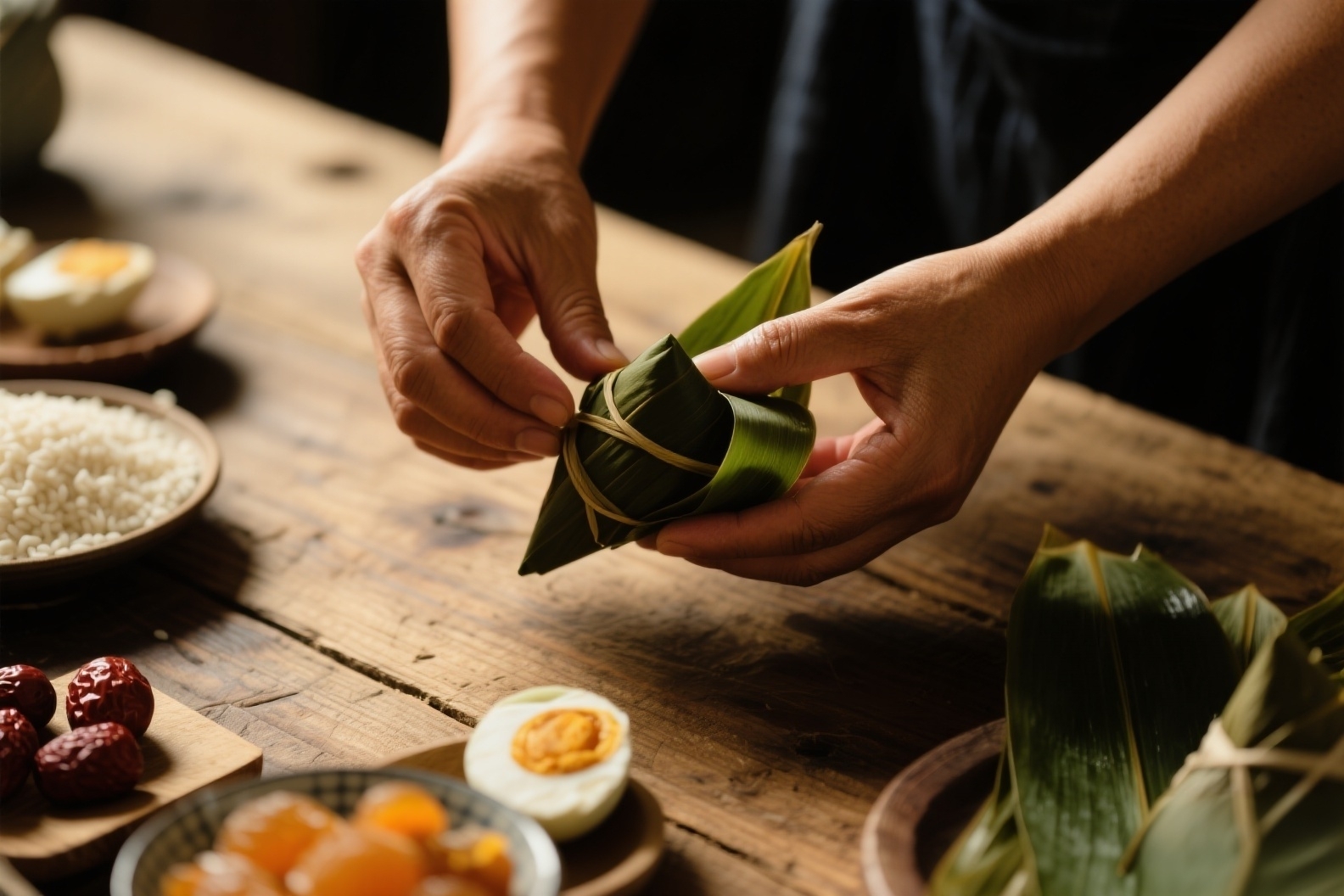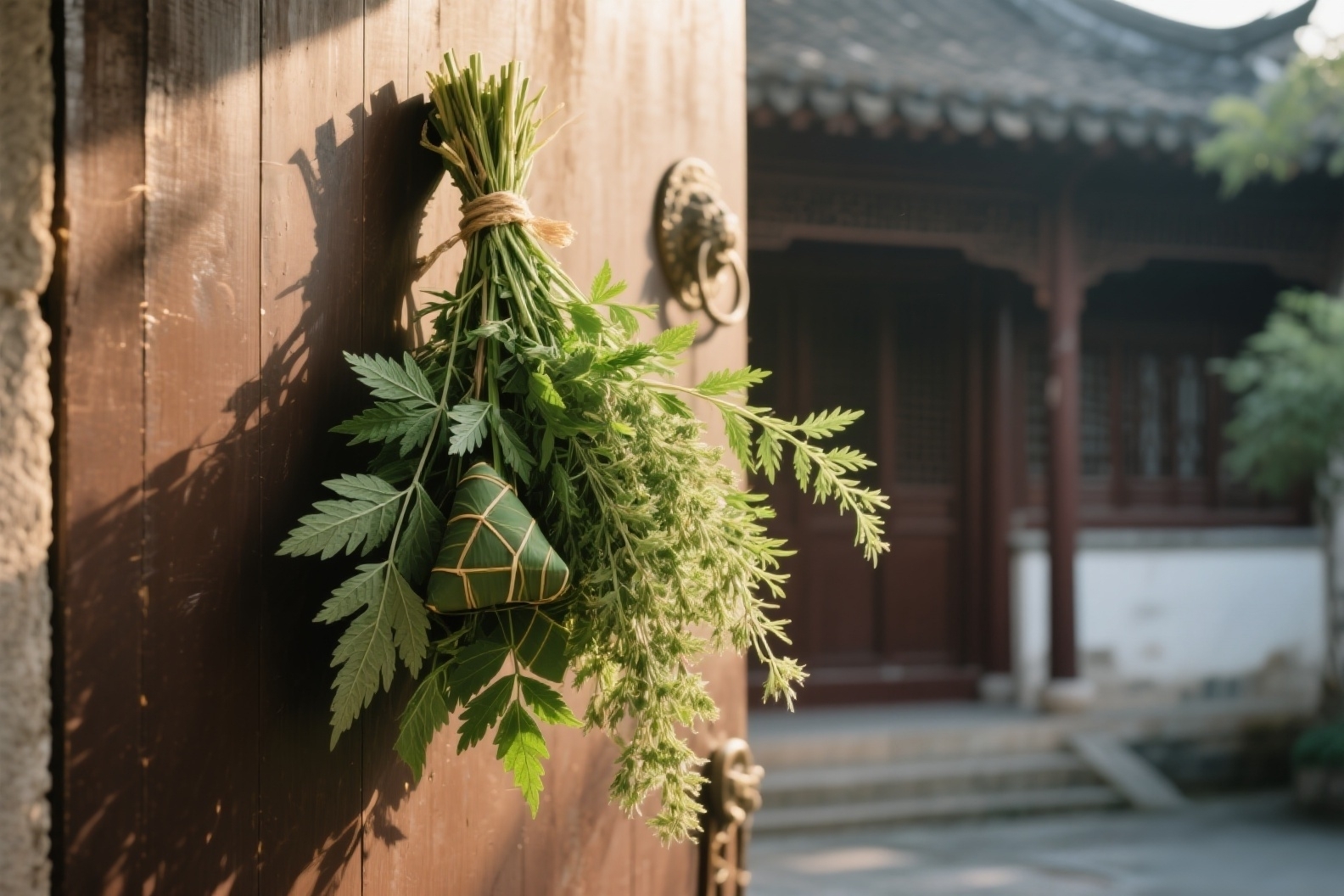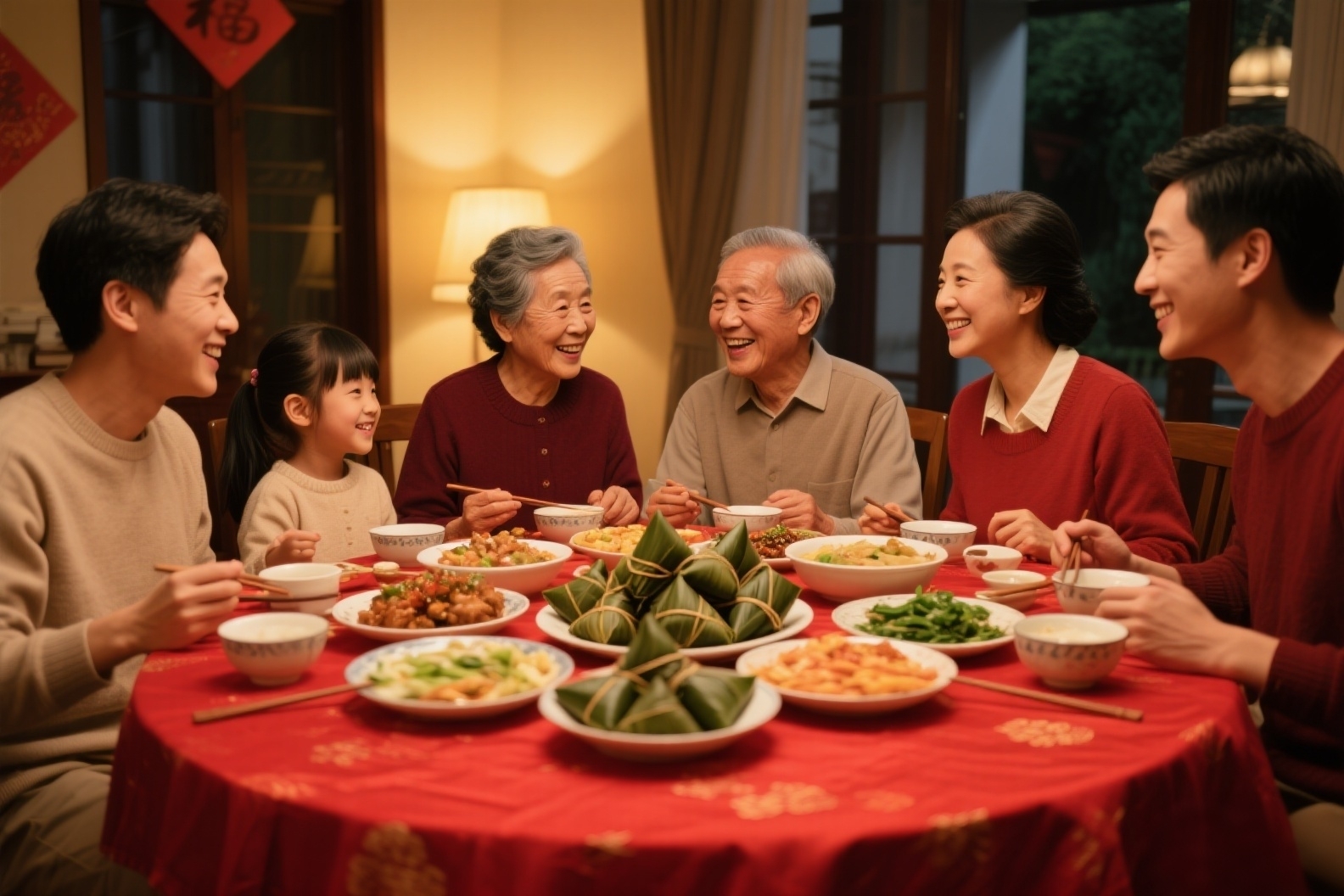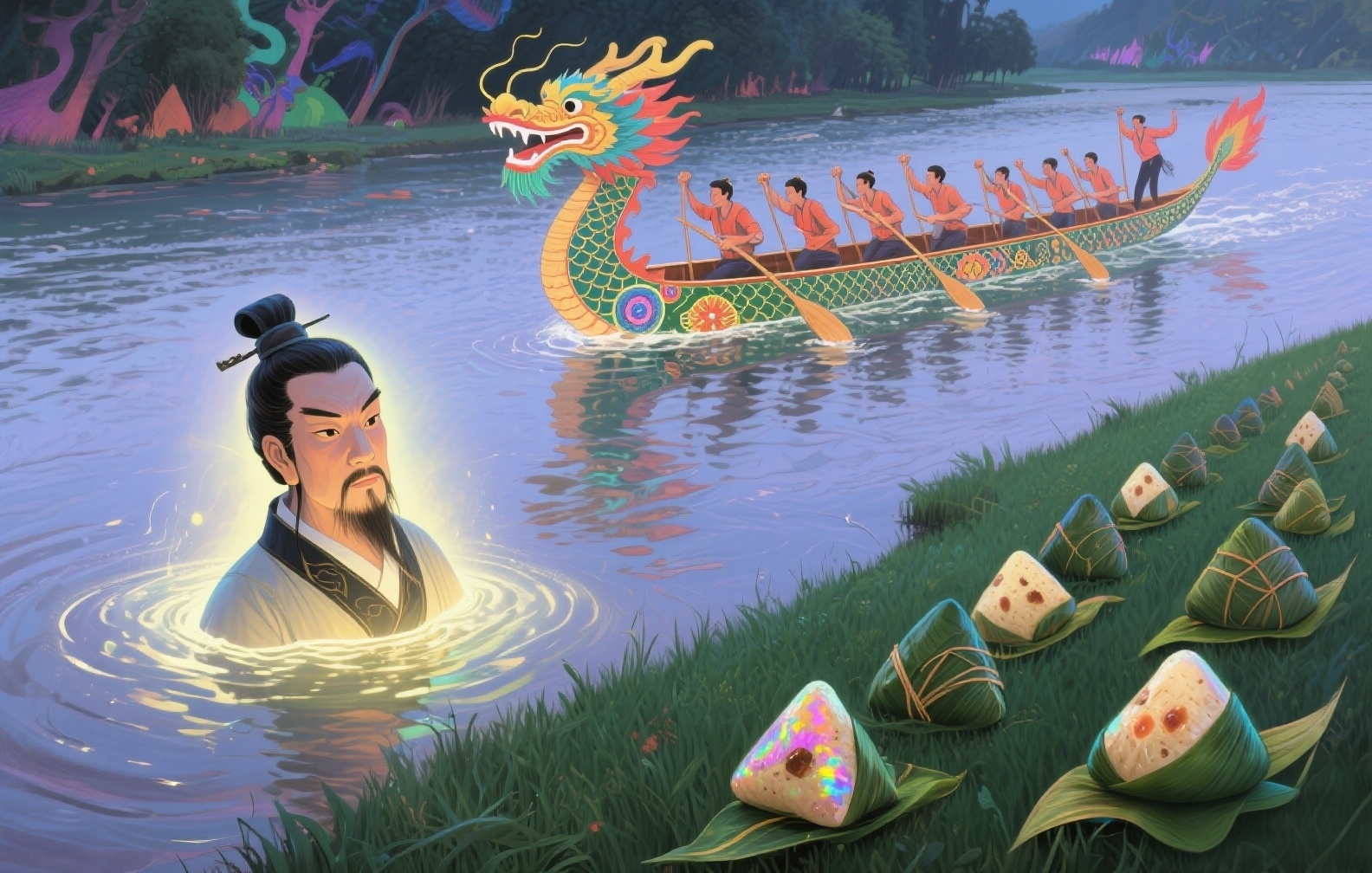 Deep in the heart of Chinese culture lies the Dragon Boat Festival, a thrilling celebration that blends ancient history with vibrant modern energy. Rooted in a story of courage and community, this festival has captivated hearts for over two millennia—and continues to inspire the world today.
Deep in the heart of Chinese culture lies the Dragon Boat Festival, a thrilling celebration that blends ancient history with vibrant modern energy. Rooted in a story of courage and community, this festival has captivated hearts for over two millennia—and continues to inspire the world today.
The Legend: When Loyalty Became a Legacy
The story begins with Qu Yuan, a wise and loyal poet of the Chu State during the Warring States Period (475–221 BCE). Devastated by political corruption and his country’s fall to invaders, Qu Yuan made a tragic choice: he drowned himself in the Miluo River as a final act of protest against injustice.
- The Rescue Mission: Local villagers raced to save him in their fishing boats, pounding drums to scare away river spirits and tossing sticky rice into the water to protect his body from fish. Though they couldn’t save him, their desperate, unified effort became the birthplace of two iconic traditions: dragon boat races and zongzi (rice dumplings).
From Local Ritual to Global Phenomenon
What started as a solemn rescue mission evolved into a joyous celebration of strength and solidarity. Today, the Dragon Boat Festival (held on the fifth day of the fifth lunar month—May 31, 2025, in the Gregorian calendar) is a spectacle of color, sound, and teamwork:
1. Dragon Boat Races: Thunder on the Water
- The Thrill: Sleek, dragon-headed boats slice through rivers, propelled by teams of paddlers moving in perfect sync to the rapid beat of a drum. Each stroke is a testament to discipline and unity, as crews chant in rhythm, their energy electrifying the crowd.
- Global Reach: What began on China’s ancient rivers now spans the globe. Cities from Sydney to New York host international dragon boat championships, where athletes from all backgrounds compete, united by the sport’s exhilarating spirit.
2. Zongzi: A Delicious Tribute
- The Tradition: These sticky rice dumplings, wrapped in bamboo leaves and stuffed with savory or sweet fillings (think pork, red beans, or dates), honor Qu Yuan’s sacrifice. Making zongzi is a cherished family ritual, where generations gather to fold leaves, share stories, and savor the flavors of tradition.
3. Herbal Blessings and Community Bonds
- Mugwort & Calamus: Homes are adorned with these fragrant herbs, believed to ward off bad luck and bring health.
- Lucky Charms: Children wear colorful sachets and wristbands called “five-color threads,” symbols of protection and good fortune.
Why This Festival Matters: More Than a Race
The Dragon Boat Festival is a living symbol of values that transcend time:
- Loyalty to What’s Right: Qu Yuan’s courage reminds us to stand up for integrity, even in the face of adversity.
- Unity Over Division: Dragon boat teams prove that success comes from working together, not alone—a lesson as relevant in today’s world as it was in ancient times.
- Celebrating Heritage: In a fast-changing world, this festival keeps China’s cultural heartbeat alive, weaving history into the present and inviting the world to join the story.
Join the Rhythm of Tradition
Whether you’re cheering at a dragon boat race, unwrapping a zongzi, or simply listening to the legend of Qu Yuan, the Dragon Boat Festival is an invitation to be part of something bigger. It’s a reminder that stories of courage, community, and hope can travel across millennia—and that the power of unity is timeless.
So, when you hear the drums beating this May 31, remember: it’s not just a race. It’s a 2,000-year-old legacy of loyalty, a celebration of togetherness, and a testament to the enduring spirit of Chinese culture.
Happy Dragon Boat Festival!
Post time: Jun-01-2025
